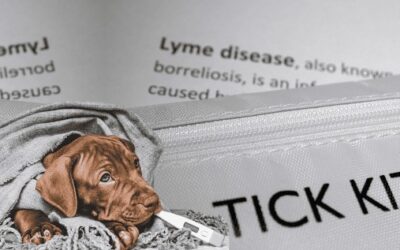Is Catnip Bad for Dogs?

Catnip, a perennial herb from the mint family, is renowned for its peculiar effects on felines. This fragrant plant contains nepetalactone, which triggers an odd response in cats. They often become euphoric, playful, and a bit silly. However, many pet owners debate whether catnip is safe for dogs.
Catnip is irresistible to cats, but its effect on dogs is often misunderstood. Some dog owners say their dogs enjoy catnip’s smell and taste, while others worry it might have bad effects. We’ll explore catnip and its link to dogs to clarify this mystery.
Is Catnip Safe For Dogs?
A common myth is that catnip is toxic to dogs. However, this notion is largely unfounded. Catnip is non-addictive and generally considered safe for dogs when consumed in moderation. Many vets agree that catnip is low-risk for dogs as long as they don’t eat too much of it.
For smaller dogs, anything more than a teaspoon at a time could be considered “too much.” If they eat larger amounts, it could potentially cause mild digestive upset (like vomiting or diarrhea), though this isn’t common. Medium or large dogs can usually handle a bit more without issues. However, you should still avoid giving them large quantities, like an entire bag of dried catnip, as this could lead to gastrointestinal discomfort.
If a dog eats too much catnip, you might notice:
- Upset stomach (vomiting or diarrhea)
- Excessive drooling
- Lethargy or unusual drowsiness
What Does Catnip Do To Dogs?
Another common misconception is that catnip can have the same euphoric effect on dogs as on cats. Some dogs may show a mild interest in catnip, but their response is far less dramatic than in cats. Dogs lack the receptors that let cats fully enjoy catnip, which has the active compound nepetalactone.
Catnip may not make dogs as euphoric as it does cats, but it can still affect our canine companions in some ways. Here are a few potential reactions that dogs may exhibit when exposed to catnip:
- Increased Playfulness: Some dogs may get more energetic and playful with catnip due to the herb’s mild stimulant properties.
- Heightened Curiosity: The strong, minty scent of catnip can spark a dog’s curiosity and lead them to investigate.
- Potential Appetite Stimulation: Some say catnip may boost a dog’s appetite and can help picky eaters
How Much Catnip Can I Give My Dog?
Too much catnip can cause digestive issues like vomiting or diarrhea. Here are some guidelines to help you determine an appropriate dosage:
- Start with small amounts. Offer your dog a small pinch of dried catnip. Then, watch their reaction.
- Adjust based on your dog’s size. Larger dogs may tolerate slightly higher amounts. Smaller breeds should get even smaller doses.
- Limit frequency: It’s best to give catnip to your dog as an occasional treat, not a daily one.
- Consult your vet. If you have concerns or see any reactions, it’s best to ask for their advice.
Remember, moderation is key when adding anything new to your dog’s diet or routine. However, if your dog is experiencing more severe symptoms or isn’t recovering, a trip to the vet might be necessary.
The cost of an emergency vet visit can vary based on your location and the level of care required:
- Exam: $100-150
- Basic blood work: $80-200
- Basic imaging (x-rays or ultrasound): $150-600
- Hospitalization of 3 to 5 days: $2,000-3,500
- Emergency surgery: $2,000-5,000
How can pet insurance help you if your dog needs treatment?
Pet insurance can be a valuable tool in managing the costs of treating a dog’s veterinary expenses. By having a pet insurance policy in place, you can have peace of mind knowing that you can provide medical care for your furry companion without worrying about the financial burden. Pet insurance can help cover the costs of veterinary consultations, diagnostic tests, medications, and even specialized treatments if required.
What Does Odie Pet Insurance Cover?
Pet insurance covers various veterinary expenses, providing financial protection and peace of mind for pet owners. Here are the details of the coverage options offered by Odie Pet Insurance:
Illness & Injury Plan
The Illness & Injury Plan is an all-inclusive insurance plan designed to cover a wide range of medical needs for your pet. This plan includes comprehensive coverage for various illnesses, injuries, and veterinary services. Some of the covered items include:
- Veterinary exams and consultations
- Diagnostics (e.g., X-rays, lab tests)
- Prescribed medications
- Surgeries and hospitalization
- Rehabilitation, acupuncture, or chiropractic treatments
- Medically necessary supplies
- Euthanasia and cremation
The Wellness Plan
The Wellness Plan is a monthly membership that focuses on preventive care and covers routine veterinary services.
- Provides reimbursements for routine care items such as wellness visits (exams and vaccines), testing and parasite prevention, dental cleanings and at-home dental care, vitamins, supplements, and more.
- Through Odie’s partnership with Petivity, a leader in smart pet products and proactive care, Wellness Plan members can also receive reimbursements for Petivity devices and health kits, as well as eligible Purina food and supplements.
- Total reimbursement up to $700 per year.



